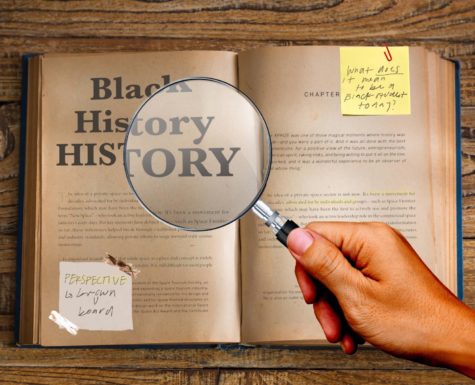OPINION | Why we all need to learn about Black history
February 16, 2022

The education on Black History Month in this country is, to say it frankly, lacking. Teaching students about what Black History Month is and why we celebrate it is incredibly important. We must consider the effects of our current education system upon the perceptions that these children develop about the world. One of the most impactful areas of education is history.
The way children are taught about the world they inhabit is a big part of how they develop as people, citizens and neighbors. The motives, events and people of the past created this present, and it is in our capability to recognize what has resulted and change what needs changing.
In classrooms across the country, Black children feel as though something is amiss, that somehow what is being fed to them about reality is not what their reality is. For some students, these feelings may be loud and may be expressed through “misbehavior.” For others, they may be quiet and unheard, shrouded with the bleak idea that their fate is already written. As the founder of Black History Month articulated so well:
“We have a wonderful history behind us … if you are unable to demonstrate to the world that you have this record, the world will say to you, ‘You are not worthy to enjoy the blessings of democracy or anything else’” Carter G. Woodson said.
How institutions present events, individuals and movements in history will largely control how these things are perceived by students.
Woodson understood the weight of educating children on the truth of the world, unbiased by race and power systems, which is what invigorated him to found the Association for the Study of Negro Life and History in 1915. This was the first organized group dedicated to the research of Black folk and their experiences, a truly revolutionary step to fostering intellectual conversation on Black affairs.
Eleven years later, Woodson introduced the beginning of what we have come to understand as Black History Month. Despite the ethos of what Black History Month was founded upon, today’s teachings and curriculums bear very little resemblance to what Woodson set out to do.
Today, students are taught about Brown v. The Board of Education, but who will be taught about Miliken v. Bradley? Students are taught about the sit-ins and may even watch Martin Luther King Jr.’s “I Have a Dream” speech, but who will educate students on the 60+ community programs run by the Black Panther Party for Self Defense? About the illegal operation run by the FBI to destroy their movement?
Students are taught about Nixon’s war on drugs and the aggressive stance taken to fight the dangers of drug addiction, but who will teach them about the legal justifications that created Qualified Immunity? Who will teach them about the Military Cooperation with Civilian Agencies Act, which was passed a year before the war on drugs?
It is these historical moments that are actively being barred from the classroom. By not educating Black children on such important topics, we lose the insight of great thinkers who can take leadership roles in the change-making process. Today’s children are tomorrow’s leaders, and they deserve to be educated accordingly and unbiasedly.
The leaders of the next generation are children today. Their development as a group is completely dependent upon what happens today and every day after. Every student deserves an education that allows them to see the world in an unbiased way. The current practices of today’s education system are classist, racist and have done more harm than good in many situations.
To enact change we must educate ourselves and continue the conversation of what comes next. To the Black students reading this, you are your most valuable asset. Continue investing in yourself and use the tools in front of you to make your life resemble your values. Reinvest in the communities that built you and connect with your ancestors through art, music and literature.
People interact with the system in infinitely different ways throughout their development. Through countless institutions in many sectors, whether it be education and healthcare, housing and employment, security and civil rights, Black people have been one of, if not the most disadvantaged populations.
The effect of this truth upon the perception that children hold of this world is unacceptable. Without truthful education, the minds of our children will never be allowed to see the world for what it is. Unless given the truth, Black children are not given the opportunity to build from an encompassing worldview.








Leave a Comment